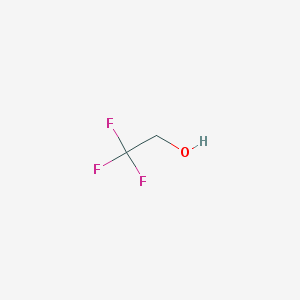The viewpoint . . . The FDA issued statistical guidelines for clinical trials affected by the COVID-19 pandemic.
-
Last Update: 2020-07-19
-
Source: Internet
-
Author: User
Search more information of high quality chemicals, good prices and reliable suppliers, visit
www.echemi.com
For clinical trials affected by the COVID-19 pandemic, how should the sponsor use statistical tools to maintain the integrity of the trial while the data should be collected, mitigate the impact of the COVID-19 public health emergency on clinical trials, and minimize the lossOn June 17,, theFDA issued the Industry Guidelines: Statistical ConsiderationPoints for Clinical Trials During the COVID-19 Public Health Emergency, which provides practical recommendations for clinical trial sponsors affected by the COVID-19 pandemicthe guidelines and follow the FDA's guidelines for conducting clinical trials during an influenza pandemicThe FDA issued guidelines for clinical trials during the COVID-19 pandemic on March 18 this year, which have since been revised and updated several timesBut the Industry, Research And Ethics Review Board (IRB) focuses primarily on how to protect patients and mitigate the effects of the COVID-19 pandemic, while the newly published Statistical Considerations Guide on June 17th focuses on statistical considerations to help bidders deal with pilot changesThe COVID-19 pandemic may have an impact on the analysis and interpretation of the primary and secondary endpoints of relevant clinical trialsIn the event that the sponsor considers making changes to the clinical trial, in order to ensure that the results of the clinical trial can be interpreted objectively and accurately and that statistical quantification with uncertainty is avoided, the guide sets out the main points of statistical consideration for the proposed changesThe FDA stressed that the applicant should discuss all proposed scenario changes and statistical analysis changes with the relevant review authoritiesguidelines clearly state that, in order to ensure the integrity of the trial, the bidders should plan forward to address the impact of the COVID-19 pandemic on the ability to achieve the test objectivesshould be submitted in the form of a program revision or a supplementary application for a Device Clinical Research Waiver (IDE) for changes that will affect primary or critical secondary endpointsThe statistical analysis plan should be updated before the database is locked and before the interim analysis of the blind should be modifiedThe updated statistical analysis plan should reflect the analysis of primary or critical secondary endpointsThe FDA also said itbidders should avoid making any changes to clinical trials to avoid bias in the interpretation of the resultsin general, modifications made based on information on the size of the effect revealed, or based on information provided by the treatment arm, may lead to bias in blind trials The guidelines provide a list of data that should be taken into account when making changes to the experiment to address the impact of the COVID-19 pandemic This list of data includes a summary of the summary of each treatment arm, the termination or interruption of treatment by the subjects, the withdrawal of participants, and the specific endpoint of the trial The closure of clinical trial sites and the interruption of supply should also be taken into account In addition, the guide provides several design and analysis strategies for evaluating the primary and key secondary endpoints of experiments affected by the COVID-19 pandemic Photo Source: Pixabay Guide makes it clear that it is important to gather specific information at the subject level This information will be used to clarify the context and causes of post-baseline events associated with COVID-19, such as discontinuation of treatment, withdrawal from trials, use of alternative or remedial therapy, missed endpoint confirmation, and alternative endpoint confirmation The guidelines also note that such information may help address potential bias and may also be used in sensitivity analysis Other strategies outlined in the guide include how to deal with statistical efficacy losses due to small sample sizes, or short follow-up durations, how to perform statistical analysis of early-stop trials, or add ad hoc analysis to trials, considerations for increasing the number of participants or extending follow-up after a pandemic, how to deal with missing endpoint determination, interruption in the supply of pharmaceutical products for clinical trials, and situations where the definition and determination of endpoints need to be modified.
This article is an English version of an article which is originally in the Chinese language on echemi.com and is provided for information purposes only.
This website makes no representation or warranty of any kind, either expressed or implied, as to the accuracy, completeness ownership or reliability of
the article or any translations thereof. If you have any concerns or complaints relating to the article, please send an email, providing a detailed
description of the concern or complaint, to
service@echemi.com. A staff member will contact you within 5 working days. Once verified, infringing content
will be removed immediately.







